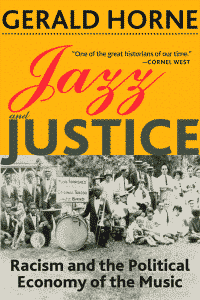Gerald Horne is a renowned historian and author of dozens of books, most recently, Jazz and Justice: Racism and the Political Economy of the Music. In this interview with Truthout, Horne describes the role of racism in the development of jazz, the gulf between its domestic and international reception–and why creativity, improvisation, and technical mastery were a means of survival for its performers.
“Anton Woronczuk: Can you imagine a more dangerous profession than being a jazz musician in the United States during the 20th century?
Gerald Horne: Certainly, being a ‘jazz’ musician in the first decades of the 20th century was probably the most dangerous profession in the arts and, along with coal mining, one of the most dangerous jobs of all. Inhaling cigarette smoke in dank clubs, being plied with alcohol and other controlled substances by unscrupulous bosses of clubs and record labels alike, being attacked violently by racist ‘fans’—all this and worse was part of the common plight of these artists….”
Read the full interview at Truthout
Jazz and Justice has also been selected as one of Truthout‘s Progressive Picks:
“Buck Clayton was ready to rumble. It was about 1934 and this Negro trumpeter found himself in Shanghai, a city on the cusp of being bombarded by marauding Japanese troops….”
Read an excerpt from the book at Truthout, here.
Copyright, Truthout.org. Reprinted with permission


Comments are closed.